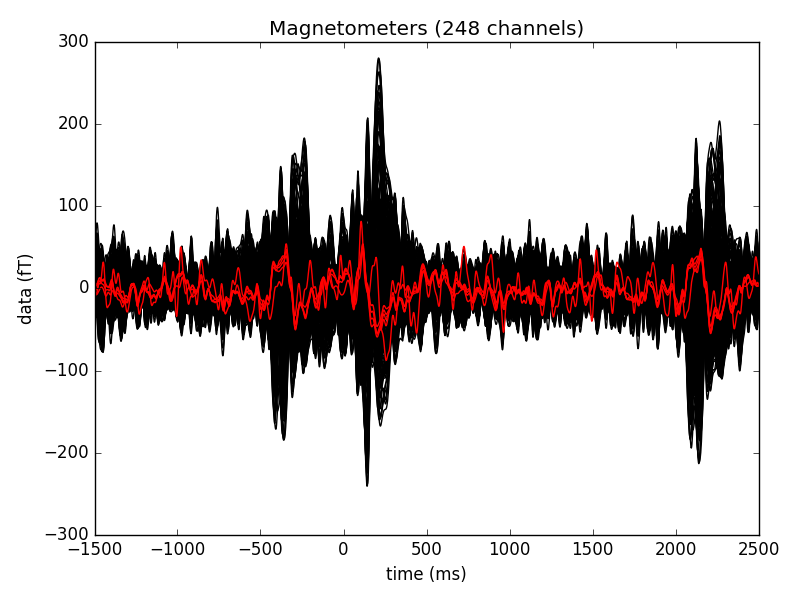Interpolate channel that are missing in an HCP output file¶
We’ll take a look at the coregistration here.
# Author: Denis A. Enegemann
# License: BSD 3 clause
import os.path as op
import mne
import hcp
from hcp import preprocessing as preproc
mne.set_log_level('WARNING')
we assume our data is inside a designated folder under $HOME and set the IO params
storage_dir = op.expanduser('~')
hcp_params = dict(hcp_path=op.join(storage_dir, 'mne-hcp-data', 'HCP'),
subject='105923',
data_type='task_working_memory')
we take the some evoked and create an interpolated copy
evoked = hcp.read_evokeds(**hcp_params)[0]
# The HCP pipelines don't interpolate missing channels
print('%i channels out of 248 expected' % len(evoked.ch_names))
evoked_interpolated = preproc.interpolate_missing(evoked, **hcp_params)
Out:
243 channels out of 248 expected
Let’s visualize what has changed!
# we calculate the difference ...
bads = set(evoked_interpolated.ch_names) - set(evoked.ch_names)
print(bads)
# ... and mark the respective channels as bad ...
evoked_interpolated.info['bads'] += list(bads)
# ... such that MNE is displaying the interpolated time series in red ...
evoked_interpolated.plot(exclude=[])

Out:
set(['A248', 'A2', 'A244', 'A247', 'A246'])
Total running time of the script: ( 0 minutes 4.375 seconds)